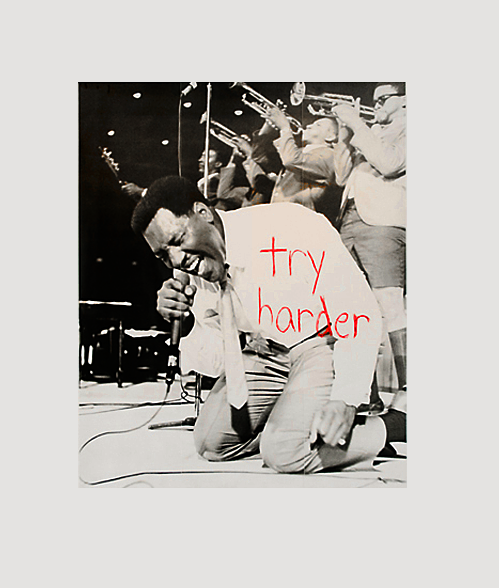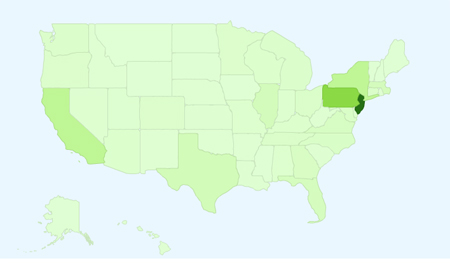Credit: Jason Lazarus

Experiments, Random Ideas, and posts that don’t fit other categories.
Credit: Jason Lazarus

My friend Tom started the Tour De Philly in 2004. We were young, single, and (mostly) ready to mingle. Over the years, the tours has reflected the changes in our lives. Girlfriends and wives (and husbands) became part of the team and those favorite old college bars started to get replaced with Center City bars. Regardless of the location and the people, a good time was always had. The 2010 edition of the TDP was no different: good friends came out and we had an excellent time, but as I clicked glasses filled with various compounds, I knew the era of the Tour De Philly was coming to a close (for us).
Before we even started the tour, the decision was made to reduce the number of bars. The last few years, the constant jumping made it hard for those falling behind to catch up and it was really hard to get drinks unless you stayed a while. So I made the executive decision to cut it down to three core bars (McGillins, Ladder 15, Jose Pistolas). This year was extraordinarily hot and the Philadelphia bars struggled to keep their businesses cool for the masses; this made the crew eager to jump to the next place, which had the effect shorting the duration of the tour.
While mostly everyone was pleased to start a McGillins, once the call for car bombs was made and the waitress informed us that they didn’t serve Guinness, the crowd wanted to move on. Ladder 15 wasn’t crowded and had plenty of seats. It was nice in there for about 30 minutes, but then the place started to fill up (and get warm) with people younger than I wearing flip-flops. One of the bar employees asked my friend who was wearing a jeff cap and a kilt to take off his hat (it was okay for kids to wear sandals and baseball caps, but Ladder 15 was too cool for the guy in the kilt). I was ready to leave.
We made a detour into Fado and it was packed. I left anyone who wanted to stay in there and made my way over to Jose Pistolas. Even though the AC wasn’t at 100%, Joses is always worth the sweat. Universally beloved (by my entire social circle) Buddy was working the bar on the main floor and I enjoyed a brief conversation and a good drink. As the Fado slackers started to shuffle in, they took over the 2nd floor of the bar. I stayed downstairs with Buddy until he told me the AC worked better up there. My friends ended their night eating and drinking, the way all TDPs should.
Sounds like a pretty good night right? Yup. But the passion is gone. The tours have been ending earlier every year and getting home via train and other safe means is becoming a headache. Additionally, who the hell wants to drink themselves into oblivion and feel like crap for the next 3 days. You are witnessing forced maturity boys and girls. It’s time for a new crop of young people with disposable income to run around the city getting completely trashed, I am too old for this shit and got stuff to do the next morning.

When this doesn’t look fun, it’s time to run
[The System has Failed Us]
When I first started to write this post, I was initially taking the “road to hell is paved with good intentions” approach to how the education system became such a mess, but after reading a book called Linchpin by Seth Godin, I modified my perception. The American education system (top to bottom) was designed to create followers (sheep). We give up our creativity with this unspoken expectation/promise that if we follow the rules, big brother will take care of us. School is design to make children good at following directions and spitting back output. This is the factory assembly line mentality to education. Big business barons (say that three times fast) back in the early 19th century realized the best way to mollify cranky workers is to give them just a bit of education to make the compliant. THAT IS MODEL THAT THE MODERN AMERICAN EDUCATION SYSTEM EVOLVED FROM.
After America won WWII and committed to educating our soldiers, American colleges started to modify their business model and focus on the masses. Suddenly college education which was reserved for the elite, was in the grasp of anyone who wanted it. The GI bill made education affordable (almost free) to thousands of boys in the 1940’s. That generation started the expectation that everyone should go to college to get ahead.
50 years of the Government subsidizing education through state schools, community colleges (which in it’s current form was an invention of the Nixon administration), and private subsidization through Pell grants ended this decade with the implosion of the economy. Instead of giving students a free ride (or at least a discount), Uncle Sam helped them secure cheap loans at 1-3% interest…”free money”. Thus was born the generation of 21 year olds with 100,000 dollars of debt.
100k of debt is okay when you are making enough money to pay it back and are able to live, but when we aren’t creating jobs for these kids paying back $100,000 loan on a waiter’s salary isn’t going to be easy. Realize that this is the moment (right now) where America’s unspoken pact with it’s students has broken. The weight of our ideals and expectations has finally collapsed and we are left wondering for the first time in 50 years if a four year undergraduate degree is worth the cost.
[Where are we today?]
Instead of making this into a long section – let me make it short and terrifying:
[Where do we go from here?]
Now that I have ruined your children’s dreams, what do we do? We need to stop looking down on community college and 2 year degrees. Who decided that we need a four year degree (or a master’s degree) to be proficient on a subject? What happened to master/apprentice relationships in business instead of just trade?
A new generation of DIY’ers and free thinkers are taking things into their own hands. More concerned with the actual skill instead of the accreditation, learners are seeking out experts to teach them their trade. As I mentioned before, college professors aren’t making a living at the schools so they are offering private courses. These courses are cheaper than the college class and more tuned to the individual student (and not broken out into three or four courses). This is a win-win situation for student and teacher.
Colleges are not leveraging technology to reduce costs. There is an “open education” movement where people who want to share their knowledge are offering their skill for free. We are seeing this in blogs, wikipedia (and other wikis), message boards, online text books, and even in the colleges themselves. Many institutions including M.I.T. and Harvard offer free online classes to whoever wants to take them (not for credits). Why aren’t colleges taking advantage of the free materials available online to reduce their overhead and the cost to students? Why aren’t colleges banding together to share resources to reduce costs?
As people learn for themselves, colleges like Western Governor’s University offer fully accredited degrees that let you test out of the classes you already know, making your education cheaper and allowing you to focus on the things you need to learn (in the interest of full-disclosure, after months of research I will be attending WGU for my MBA starting next month). Unlike online degree-mills, WGU is non-profit, charges in 6-month increments, and lets you take as many classes as you can in those 6 months. Google and Bill Gates have invested heavily in the school citing it as a model that works for the future of education. WGU is just one example of many non-traditional schools emerging to make education affordable but still challenging (I’ll keep you updated).
[Conclusion…For Now]
Just because our parents did it and “that’s the way it’s always been done” doesn’t make it the best way to do something. We need to open our minds to the possibilities that technology is creating. The educational model is broken on the grade school, high school, and undergraduate levels; unless students and the employers of the world take a stand and accept change, we are all going to be in a shit-load more debt with nothing to show for it.
[Resources]
[Credits]
This post relied heavily on source material from the books:
DIY U by Anya Kamentz
Linchpin by Seth Godin
I highly recommend these books

I want to thank everyone who has read the blog and checked out the other websites this year. I do this because I enjoy it and I hope you do too.
I guess next year is a completely green global map? Not sure if all of those white spaces have internet access regularly (but I am going to find out). I am glad people are out there reading. Thanks for a great 2009. Hope you stick around for 2010.

It was the summer of 1990, Philadelphia was typically hot, sweaty, and a little smelly for mid-July. Since it was the middle of the summer, my old man decided we should go on vacation. My family was hit and miss with vacation; Sometimes my father would take a week off, sometimes it would be a few days, sometimes not at all. If we did go on vacation, we ALWAYS went to the Jersey Shore (Southern Shore – Wildwood). That summer, I was nine years old and my sister had just turned 11 – my father announced to us that we were going to the Catskill Mountains for a few days and my head started spinning.
I had never heard of the Catskills Mountains. This was a massive break from the routine and was outside my “comfort zone” of South Philadelphia and Southern New Jersey. Reflecting on my youth, I developed a philosophy about the typical South Philadelphia upbringing: it is very insular – “the world outside South Philadelphia does not exist”. Once the shock of change wore off, I started seeking information about our summer destination. My first source was my mother; she was trying to hide her own lack of enthusiasm, but managed to inform me that at one point in it’s illustrious history, the Catskill Mountains was a hotbed for stand up comedy. This had me excited until someone told me that the good comedians don’t go there anymore and was now a place that old people go to – I was not pleased.
As we packed our things into my father’s 1983 Buick Regal, I wondered what this vacation would be like… I should have been wondering “how long is the car ride?”
To understand this situation, let us begin with a brief description of my father: He is a man of medium height and average weight. He works in the food industry (you may even catch him on TV sometimes) and doesn’t talk. Let me repeat – He doesn’t talk – unless you have managed to do something wrong. Over the years I have come to admire and appreciate his silent nature: most people can’t shut up, but you can’t get a word out of my old man. In addition to his own quiet nature, at the time, he enjoyed complete silence around him. This meant no radio (which he has since changed his mind about) and of course, no conversations in the car besides basic questions.

Having been around the man my entire life, I was used to his “modus operandi”; However, I was not prepared to be in a car in complete silence for 4 hours. Nobody told me this trip would take 4 hours as I would have most definitely stayed with a relative. Remember: This is before iPods and DVD players in the back seat of the car. You know what our back seat had? A big rotting hole in the car’s floor – it was like that for months – I lost countless toys to that hole. He placed a metal plate to the floor before the trip to prevent any potentially fatal slippage. I was not a complete moron – I did have a walkman (with tapes) but of course after 2 hours – the battery ran out and the extras were in the trunk. At one point we stopped for refreshments and gas. My old man got me a Snapple Iced Tea. I remember this because after I finished the iced tea I was mindlessly clicking the cap until my father asked if he could see the cap. Out the window it went.
People have their own way with dealing with silence – I tend to get lost in my head which I managed to do successfully for a few hours, but not everyone takes that approach. My sister kept it under control for a few hours but then she started to get bored. As children, my sister was very much the alpha personality and I was much more passive (that has probably flip-flopped at least outwardly). She also takes after my father a little bit in the fact that she can hold a grudge and she can be a world class ball-buster (I mean comic villain ball-buster, it’s pretty admirable when you aren’t on the receiving end). By the third hour my sister was ready to enact revenge for some past transgression. Make no bones, my sister was an expert at setting traps to get me in trouble. She knew exactly how to push my buttons to make me lose it. I don’t remember what she did exactly, but her move was to always ask a seemingly innocent question to my father which would highlight a recent screw-up on my part. I would immediately attempt to defend myself which of course would break the silent harmony that my father craved. She managed to replicate this trap and like an idiot I fell for it every time. Looking back I think my father knew exactly what was going on and was playing his part to entertain himself for 4 hours.
My sister’s traps ate up the remaining time and when we finally pulled into the parking lot of the “resort” I almost kissed the ground. That is until I noticed that this place had obviously seen better days. Rusting fence around the tennis courts, buildings in need of paint, and of course the rooms had a medicinal smell similar to a hospital (“Of Course!” I thought – “Old People”). My father was more silent than normal. He would usually be making some comment how he was going to spend his time. He was just walking around eye-balling the place. My parents friends met us in the lobby and it was then that I discovered where my father got this bright idea – his buddy. His friend reminded me of Jack Tripper’s neighbor Larry (from Three’s Company). While his friend went on about how great this place was with the tennis, the golf, and the streams, my father walked around with a disgusted look. That disgusted look remained during dinner (which was infested with the elderly). When we got back to the room, he made the announcement: “Pack up your things, we are getting the hell out of here tomorrow”. And that is exactly what we did. We hopped in the car the next morning and drove the 4+ hours in silence to… The Jersey Shore.
I spent a few days with “Woody” from the story last week; being in his company make me think of this story, which I had to capture while still fresh in my mind. Some facts, places, and people might have been changed to protect people’s identities and to make the story better. Deal with it.
[Background]
The events of this story took place on Sunday, August 10th, 2008 in the Pocono Mountains of Pennsylvania. My friends and family rented a house for my bachelor party. Through the course of the weekend one of the guys whom we shall call “Gambo” took offense to the antics that were taking place in the house, especially one that indirectly-directly impacted him. This one specific event caused Gambo to mope around the house and not talk to anyone. On Saturday evening, a minor confrontation broke out between Gambo and a gentlemen we shall call Woody (actually a confrontation between me and Gambo also broke out). Woody was one of the principles in the act that caused Gambo to freak out and stop talking to us. Woody took responsibility for any damage and called in a specialist at a very low cost (a fraction of the deposit on the place). Gambo, who booked the house, wasn’t satisfied for some reason. Gambo came out of his funk on Saturday night, but still wasn’t talking to Woody. This leads us to Sunday Morning…
It had been decided after the specialist repaired the damage to the house (outstanding work I might add), we would all go out and get lunch. I picked a local Indian place to piss off my friend “Nuesbaum” who doesn’t like ethnic food. The pressure from the last few days had lifted since the damage was fixed and the security deposit was coming back (which nobody expected to be returned except for Gambo). Woody and I got into Republicaster’s car. As we were pulling out, Gambo got into the back seat next to me. The next 6 minutes won’t ever be forgotten.
[The Ride]
{Scene: Republicaster, Woody, and I are in the driveway of the house, getting ready to leave for lunch. Gambo is looking at the car.}
Woody: I hope he doesn’t think he is getting a ride with us.
Joey: I doubt he will get in the car, Gambo is non-confrontational, he knows better than to come in here with you.
{Gambo gets in the car. I hear Republicaster saying “Oh shit” under his breath. The car is silent for a full minute}
Joey: Man I can’t wait to get me some Indian food. I wonder if Nuesbuam is going to make it through lunch before he ruins himself.
Gambo: He isn’t coming, he is going to get Burger King with some of the other guys
Joey: What the hell…
Woody (to Republicaster): Man, that specialist did a great job today.
Republicaster: No doubt man, we got lucky finding him. Good work.
Woody: Gambo, you like what he did?
Gambo: Yeah it looks fine.
{Woody nodds}
Gambo: I just want to let you know that I am not paying you for the specialist, I don’t think I should have to.
{Woody remains silent}
{Woody turns around to face Gambo}
Woody: You don’t think everyone should pay for the damage. Everyone was down there laughing and half the people in the house were in on it. It’s a bachelor party – everyone should pay. It should just come out of the deposit money.
Gambo: I don’t think I should have to pay for that damage.
Woody: That’s because you are a rat.
{Silence from everyone. There are much nastier words in the English language, but when Woody called Gambo a rat, it sounded like the absolute worst thing in the world}
Woody: Republicaster, can you believe this guy? He can’t relax and be part of the group, he needs to create a problem… needs to act like a RAT
{Gambo is looking at me with pleading eyes, I just look back with a a sad nod. I felt bad for the guy, but he got on the crazy train, now he need to sit back and enjoy the ride}
Woody: I can’t believe I am sharing a car with a rat. This guy has a been a complete jerk all weekend. A total RAT. You ever see a rat chew a hole in a wall? Then he climbs in the wall and makes more holes. And then he gets in your kitchen and eats your food and poops all over your counter. That’s what Gambo is doing. He is crapping in my kitchen!
Gambo: You think I should…
Woody: RAT!
Gambo: Why should I be expected to…
Woody: RATS CAN TALK! When a Rat got into our house, my mother made me chop off it’s head with a shovel….
{Woody is now sweating with rage and the thought of rats. Republicaster and I are fighting the urge to laugh.}
Woody: I am done with this guy. Nobody should talk to RATS, it’s bad for your health.
{Republicaster nods in agreement as we pull into the Indian Restaurant’s parking lot, Gambo is just staring out the window like nothing happened}
[Conclusion]
Lunch was a curry flavored session of tension. The other guys didn’t know what happened, but they knew something was up. Gambo and Woody stayed away from each other and when the meal was over he did not join us in the car ride home. Actually, I think we just got in the car and left knowing that Nuesbaum’s car had room (they met us after they got back from BK). Woody and Gambo kept their distance until the car ride back to New Jersey as they were both in my car. Gambo put on his earphones and listened to his iPod the entire ride home not saying a word to either of us. Woody made a few Rat comments, if Gambo heard them, he didn’t react. I didn’t speak to Gambo for a few months (actually not until days before the wedding). That is another topic to be covered in another place.
The boys didn’t get their deposit money returned for months, but none of them said anything to me about it – not even Woody, who told me after he got the check that he wasn’t expecting to get one. Eventually Gambo stopped talking to the group and after some initial questioning from the guys, they stopped asking about him. I have no doubts that this incident had something to do with his previous self-imposed exile.